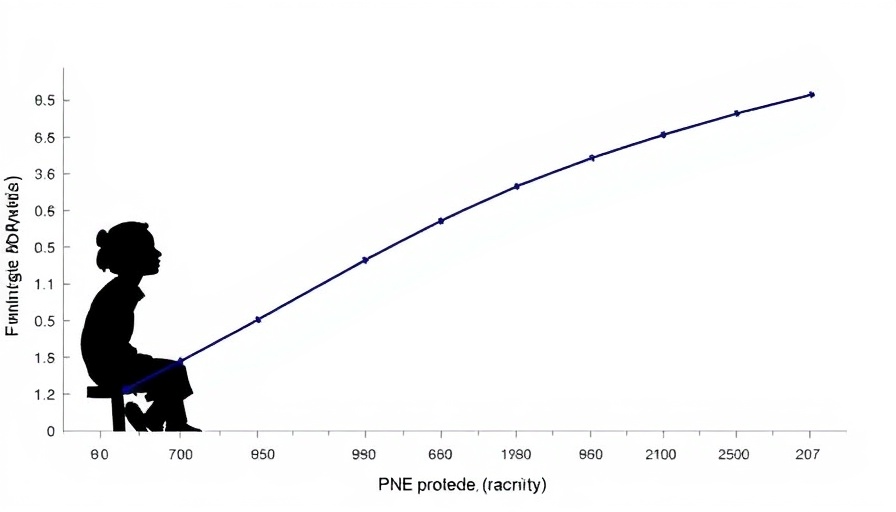
The Silent Shift: Understanding Cognitive Decline in Aging Leaders
As executives and business leaders navigate complex landscapes, understanding cognitive changes in healthy aging becomes crucial. Recent research highlights the nuanced relationship between pragmatic reasoning and cognitive decline, also known as subjective cognitive decline, as well as the concept of cognitive reserve. For leaders, these insights carry significant implications, as maintaining peak performance is essential in decision-making roles.
The Impact of Cognitive Reserve on Executive Function
Cognitive reserve refers to the brain's resilience against aging and deterioration. Individuals with higher cognitive reserve are generally better at managing cognitive challenges as they age. This plasticity allows them to utilize their knowledge and experiences more effectively, which is vital for leaders who must make complex decisions quickly. A good way to enhance cognitive reserve is through continuous learning and engaging in mentally stimulating activities. As research suggests, remaining intellectually active through professional development can fortify cognitive functions even in later years.
Connecting Cognitive Decline to Executive Performance
For CEOs and business leaders, the ramifications of cognitive decline can manifest as impaired decision-making and reduced problem-solving capabilities. As outlined in recent studies, aged individuals may experience pragmatic decay that affects their ability to weigh options effectively. This decline may not correlate directly with age but rather how executive functions are impacted by accumulated stress and overall mental health. Understanding and acknowledging one’s cognitive limits is a step towards mitigating potential pitfalls in leadership.
Strategies to Counter Cognitive Decline
Although cognitive decline can be a daunting prospect, there are actionable steps executives can take to minimize its effects:
- Seek Feedback: Regular assessments from peers and mentors can provide insights into one's cognitive health and performance, allowing for adjustments as needed.
- Embrace Diversity: Engage with team members who challenge your thinking and approach. Diverse viewpoints can enhance decision-making processes and compensate for any gradual cognitive shifts.
- Establish a Healthy Work-Life Balance: High-stress environments can exacerbate cognitive decay. Prioritizing mental health through balanced living can significantly enhance cognitive performance.
Future Predictions: What Lies Ahead for Aging Executives
As the workforce ages, it's expected that discussions surrounding cognitive health will increase. Corporations may begin to address cognitive decline through training programs aimed at older leaders, focusing on enhancing cognitive reserve and providing resources to maintain mental sharpness. Such initiatives not only benefit individual leaders but can also improve organizational health by fostering a culture of adaptability and innovation.
Emotional and Human Interest Perspectives
Understanding cognitive decline is not just a matter of the mind; it's about people. Leaders are often viewed as infallible decision-makers. Recognizing that they too might face cognitive challenges can humanize them and foster a more supportive environment. Moreover, sharing personal stories about managing cognitive changes can serve as inspiration for others in similar positions.
Current Events and Cognitive Performance
The COVID-19 pandemic has underscored the importance of mental health in corporate settings. Leaders have had to adapt to unprecedented challenges, leading to increased stress and potential cognitive overload. By integrating mental wellness strategies into regular business practices, executives can safeguard their cognitive health while leading their organizations through crises.
As the conversation around cognitive health grows, it offers an opportunity for leaders to reflect on their own cognitive processes and implement practices that promote longevity in decision-making. In a world that demands quick thinking and innovative solutions, maintaining cognitive sharpness is more important than ever.
In summary, understanding the interplay between cognitive decline, cognitive reserve, and executive performance is critical for today’s leadership. Through proactive measures, such as seeking diverse perspectives, maintaining mental health, and fostering an environment of continuous learning, executives can navigate cognitive aging gracefully and effectively.
Now is the time for leaders to prioritize cognitive health as a key part of their leadership strategy. By implementing exploratory methods to manage cognitive reserve and addressing cognitive decline, executives can enhance decision-making capabilities while fostering a culture of compassion and tolerance for mental health challenges in the workplace.
 Add Row
Add Row  Add
Add 




Write A Comment